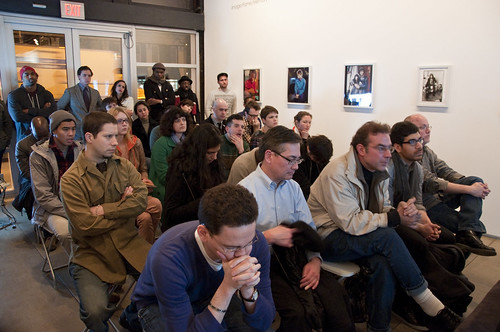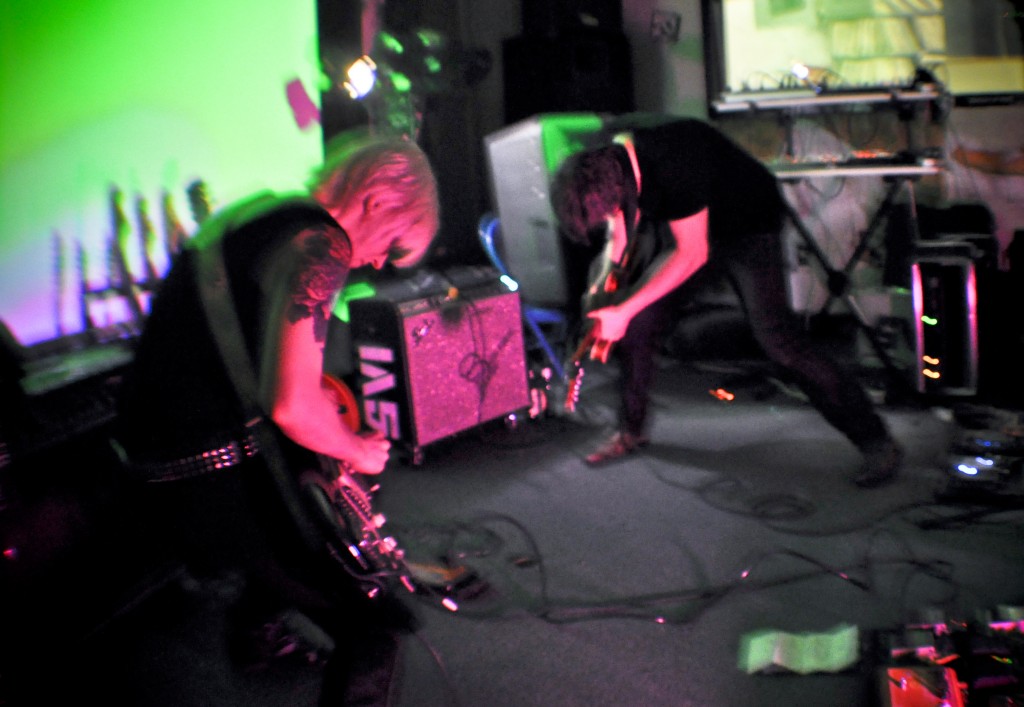 I want to reflect on Theorizing the Web 2011 by asking for a discussion about what academic conferences should look like. In fact, let’s forget the term “conference” for a moment and ask how thinkers should best organize to discuss intellectual work in public?
I want to reflect on Theorizing the Web 2011 by asking for a discussion about what academic conferences should look like. In fact, let’s forget the term “conference” for a moment and ask how thinkers should best organize to discuss intellectual work in public?
Theorizing the Web 2011 was PJ Rey and I’s first attempt at tackling this question [read PJ’s review of the event here]. We started this blog to provide a public forum for ideas and the conference was intended to do the same. Many reviews of the event have emerged (some posted on this blog over the past ten days). What has surprised me most is the degree to which the conference itself has been a main topic of discussion. And while we are very proud that the reviews have been so overwhelmingly positive about our view of an academic event, we understand that this is also a result of the failing of traditional venues for the intellectual exchange of ideas. Academic conferences are too often suffered through and individual sessions often poorly attended. Media outlets tend to ignore anything that smells too much like intellectualism, a term itself that has come to be viewed pejoratively because, at least in part, intellectuals have so poorly communicated ideas to the public. As graduate students, we know we needed to create a world that is better prepared to communicate the critical theories so important to understand our changing realities.
And the result on April 9th went well above our expectations.
We attempted to bring in art, multi-media, interdisciplinarity, and even non-disciplinarity to this event. Registration was pay-what-you-want. The event began with beers in an alley and finished with a loud band. We tried lots of things and will try much more if we do this again next year [we want to].The art was fun, and us organizers can take credit for that.
However, my lasting impression of that day is that there was a vibe, an emergent zeitgeist, of people having fun exchanging smart and important ideas on under-theorized topics. Presentations were intellectual and entertaining. They appealed to people in many disciplines and even to those in attendance who are not academics. This was exactly what we wanted idea-exchange-in-public to look like, and the credit for this goes entirely to all those in attendance [thank you, everybody!].
So I want to continue this conversation about what conferences should look like. What different sorts of public intellectual projects can be done to give thinkers room to speak publically about their ideas?



Comments 5
Jenny Davis — April 19, 2011
I think you say it perfectly when you say that:
"...there was a vibe, an emergent zeitgeist, of people having fun exchanging smart and important ideas on under-theorized topics."
That "vibe" has stayed with me since I left. Although physically tired by the end of the day, I felt energized, excited, and anxious to keep the ideas flowing. I still do.
As per your question (what a public exchange of ideas should look like)I think it should look very similar TtW2011. In a perfect world, the conference would be a bit more temporally spread (perhaps over a couple of days) and there would be more built-in discussion time for each session. I would also love to see some pre-set debates (e.g. Are We Prosumers or Co-constructors?: Scholars Battle to the Death)
nathanjurgenson — April 20, 2011
thanks, jenny! feel free to post ideas you might have here on the blog. we'd love to keep these conversations going!
and i love your debate idea!
replqwtil — April 20, 2011
It sounds really great. I've only been to a few events like that, and it always has a feeling of collectivity, of something emergent from the interactions. There is definitely an aspect of simply sharing a passion with like-minded people, yet at the same time I can't help but feel like there's something else.
For me, I've only had that same feeling at 'geekier' events. I can't help but wonder if it is partially an effect of existing in augmented reality in the material, rather than digital, sphere. A few people talking about the event commented on how it sort of collapsed their digital world into a 'real' world event. I think there is a commonality created by that pre-existing network which can be very surprising, an existing sense of community which is inherently easy to fit into it. I'm just hypothesizing something I wasn't there for though. Only my thoughts on potentially similar experiences.
I'm not sure how that kind of community aspect could be incorporated into other academic events. It really needs a pre-existing culture created by that digital network to emerge I think. Maybe conferences should only be between people that already like each other...
nathanjurgenson — April 20, 2011
interesting points! however, the vast majority of us did not know the vast majority of everyone else. the very connected few, or even half, might have felt that their twitter networks became embodied that day, but the general feeling of community seemed to go beyond that well-connected group, too. but i do think you make a good point here.
replqwtil — April 21, 2011
Hmm, good point. It's easy to overgeneralize from such a distant point of observation.
I still think there is something to be said for a pre-existing sense of community, but certainly not so simple as literally already knowing everyone. Being part of a similar network creates certain values which create that easy vibe...?
Anyway, I'll stop talking out my ass. Interesting stuff though!